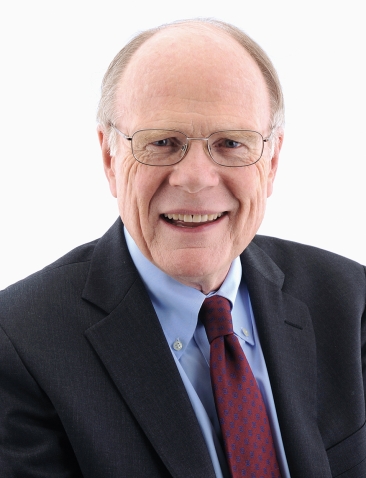On July 15, Chip Case passed away after a long illness. Chip taught at Wellesley College for 34 years, where he was the Katharine Coman and A. Barton Hepburn Professor of Economics until his retirement in 2010. To be Chip’s student was to be inspired to think in new ways by someone with seemingly boundless confidence in one’s abilities. To be his dinner guest was to be plied with delicious wine and delicious stories … and perhaps original poems, and certainly country music. To be his colleague was to be moved by his love for his discipline, his dedication to his students, and his devotion to Wellesley College.
Chip earned a B.A. from Miami University in Oxford, Ohio, in 1968, with majors in both economics and English. He then served in Vietnam as a captain in the U.S. Army from 1968 to 1971. After his military service, he entered the Ph.D. program in economics at Harvard University, earning his degree in 1977, having specialized in public finance and urban economics.
Chip began teaching at Wellesley in 1976. Throughout his long tenure, he was the quintessential teacher-scholar, devoting himself with great success both to the classroom and to his research. His research has been published in myriad well-regarded economics journals. Chip’s landmark work on the housing markets, in collaboration with Nobel-Prize-winning economist Robert Shiller of Yale, led to the development of the Case-Shiller Index, a repeat-sales house price index that has been enormously influential. His work at the intersection of housing, macroeconomics, and public finance helped illuminate the role of housing markets in the broader economy. Always, Chip strove to communicate broadly about the implications of his research for people and their decisions. He wrote op-ed pieces and was regularly interviewed by the press. He held positions on boards of directors where his knowledge could help influence policy. He co-authored a popular introductory textbook, Principles of Microeconomics, now in its 12th edition.
As impressive as the foregoing list of academic accomplishments is, it is even more impressive when understood against the backdrop of Chip’s devotion to teaching and his students. His philosophy was “teach the students, not the material.” By that he meant that the goal of a class is for the students to achieve intellectual growth, not for the professor to get through some prescribed set of material. He was able to meet students wherever they were in their understanding of the material and elicit more. If he saw in a student the desire to pursue a Ph.D. in economics, he was thoroughly committed to her success as a professional economist, strategizing about where to apply for graduate school, writing recommendation letters, cheerleading her through Ph.D. qualifying exams, and crowing (loudly and widely) about her intellectual talents.
Chip’s contributions to the Wellesley community went beyond the economics classroom. He was a sports enthusiast who loved Wellesley athletics and was frequently brought in to seal the deal with potential recruits, a fact that was instrumental in the athletic program’s development and success. He attended hundreds of games on and off campus, even traveling with the volleyball team to the NCAA championships. He had the distinction of being Wellesley’s greatest “super fan,” always draped in Wellesley sports swag and cheering on the Blue. He and his wife, Susie, were host parents to international students, providing a home away from home for many, many students who could not travel to see their own families during breaks. His involvement with students was lifelong, attending countless weddings, and later, children’s baptisms and bar and bat mitzvahs. Upon arriving on campus, new faculty in economics would be met with the same question from virtually every group on campus, from finance to facilities: “You’re in the economics department? Do you know Chip Case?”
Chip is survived by Susie, his daughter, Kristen Case, a half-brother, and two grandchildren. Shortly after Chip passed away, Kristen and Susie wrote the tribute below, which seems a fitting way to end this remembrance:
We remember his irreverent and irrepressible humor—with him till the end—as well as his passion for wine, the Red Sox, country music, Wellesley athletics, and being alive. Wherever he is, it’s an uncloudy day, and he’s driving too fast and playing the music too loud. We’re so grateful to the many, many of you who reached out to him in one way or another during his illness. He felt that love, as did we.
By Kristin F. Butcher ’86, Marshall I. Goldman Professor of Economics and chair of the economics department





We ask that those who engage in Wellesley magazine's online community act with honesty, integrity, and respect. (Remember the honor code, alums?) We reserve the right to remove comments by impersonators or comments that are not civil and relevant to the subject at hand. By posting here, you are permitting Wellesley magazine to edit and republish your comment in all media. Please remember that all posts are public.